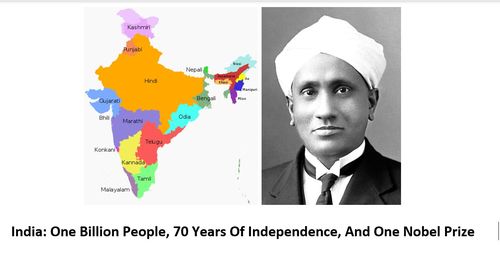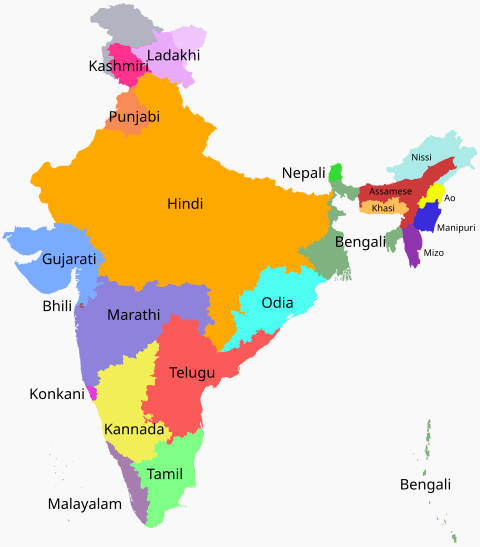
Perhaps Surprisingly, Indians REALLY Aren’t That Intelligent (On Average)
By Lance Welton
02/16/2019
India is a confusing place. It is able to send hordes of extremely intelligent and highly-motivated scientists to the USA, yet its city centres are so chaotic that tourists have to pay street urchins to throw themselves into the road just so that they can cross it. The land of the Hindus is pursuing its own space program, yet vast areas of the country lack electricity, running water, and even people who can read. What does this say about Indian IQ?
The late J. Philippe Rushton gave an answer to this question back in 2007: Indians Aren’t That Intelligent (On Average). But much more evidence has since been developed.
A country’s average IQ is a massively important predictor of national accomplishment and national average living standards, as Richard Lynn and Tatu Vanhanen showed in their seminal 2012 book Intelligence: A Unifying Construct for the Social Sciences,as well as in their earlier book IQ and the Wealth of Nations.
For a few years now a German psychologist trained in political science called David Becker has been tracking down and collating every possible source that might permit assessment of any nation’s IQ. The young researcher, who is based at Chemnitz Technical University in East Germany (the city was known as Karl-Marx-Stadt under Communism) places all his research online so that those who criticise national IQ data can easily have their criticisms refuted. He clearly presents his methodology, in a way which Lynn did not, so that critics can see precisely what’s he’s done, how he’s done it and why: samples are rated for reliability, for example.
On this basis, Becker has also recalculated all of Richard Lynn’s much-denounced National IQs. Significantly, his calculations strongly correlate with Lynn’s — see the results at ViewOnIQ.org.
As part of this project, Becker has also updated and recalculated the Indian IQ, the most recent known study of which was published in 2015 [Gender Performance on Intelligence Quotient Test among Medical Students in a Government Medical College, By B. Uppu et al., IOSR Journal of Dental and Medical Sciences, 2015]
Incredibly, considering all of the “Raj from The Big Bang Theory” types populating science departments at America’s top universities, Becker’s meta-analysis of 11 studies revises the Indian average IQ downwards. Lynn and Vanhanen calculated it to be 82.2, but Becker has found it to be a mere 76.24.
How can a country with an IQ only six points above that of Sub-Saharan Africa churn out scientists of such high calibre and even begin to take people into space?
The answer: it is not merely in the geographical sense that India is a subcontinent — defined as a large mass of land separated by mountains from the rest of the continent. It is also continent-like in terms of its population.
India and China both contain over a billion people, but in China those people are overwhelmingly of one ethnicity, Han, and speak one language, Mandarin. The situation in India could hardly be more different.

The national languages are Hindi and (still) English. However, there are at least 780 distinct languages spoken in India, with most — though not all — of these languages being associated with a distinct ethnic group, rather as is the case with languages in Europe. Around 78% of Indians, and especially those in the north, speak Indo-Aryan languages that are distantly related to English, such as Hindi (41% of India’s population), Bengali (8%), and Gujarati (4.4%). Most of rest, particularly those in the South, speak Dravidian languages, such as Telegu (7.1%), Tamil (5.9%) and Kannada (3.6%). Some even speak language “isolates” unrelated to any other known language.(See Wikipedia’s List of languages by number of native speakers in India.)
There are also about 225,000 Anglo-Indians — down from some 2 million at independence in 1947. These are native English speakers, and usually Christian, ultimately descended from a union between an English colonial and a (usually female) Indian. Over the centuries, Anglo-Indians have married each other, effectively creating an ethnic group.
India is divided into 29 states and 7 territories, many of these states are named after their dominant ethnic group and its language. And, crucially, there seem to be exceptional IQ differences between these states, paralleling the way in which southern India is rich and northern India is poor.
Richard Lynn and Indian psychologist Prateek Yadav explored differences in intelligence between Indian states in a study published in the leading journal Intelligence in 2015. [Differences in cognitive ability, per capita income, infant mortality, fertility and latitude across the states of India, By Richard Lynn & Prateek Yadav, Intelligence, 2015]. Drawing upon data from all 29 states plus 4 territories, they found a very clear pattern.
Southern India is markedly more intelligent than northern India; the correlation between latitude and their test of cognitive ability being -0.43. Even more significantly, coastal India is more intelligent than inland India, the correlation between closeness to coast and average intelligence being -0.60.
The most intelligent (on average) area is a territory called Daman and Dui, two islands that were part of Portugal’s historic Goa colony, seized by India in 1961. (American pundit Dinesh D’Souza is descended from Goanese converts to Catholicism). Unfortunately, the authors do not calculate IQ scores, merely presenting average scores on standardized school tests. These islands are followed, in average score, by Kerala, a southern coastal state. The least intelligent, and also poorest, India state is Bihar, an inland northern state, close to Bangladesh.
Helpfully, Lynn and Yadav tested a host of other variables, meaning they were able to reasonably hypothesize as to the causes of these differences. A key factor: Islam. Around 20% of India’s population is Muslim and the Muslims overwhelmingly live in the north. Indeed, the Muslims were politically dominant in northern India — building the Taj Mahal and other such achievements — until the British fully took control in the nineteenth century.
The correlation between the percentage of Muslims in a state and its intelligence was -0.32. The authors propose that a likely reason is inbreeding. Hindus tend not to marry cousins, but Muslims tend strongly to marry their cousins. Cousin marriage elevates the probability of double doses of mutant genes, meaning that the brain works less well, so intelligences starts to fall. The more inbreeding there is in a nation the lower its IQ tends to be [Inbreeding depression and IQ in a study of 72 countries, by Michael A. Woodley, Intelligence, 2009]
Coastal India, they suggest, is more intelligent because there will have been greater breeding with European traders. This is most obvious when we consider that the most intelligent part of India is two islands which were run by Portugal until 1961. (American pundit Dinesh D’Souza is descended from Goanese converts to Catholicism). We would also expect that ambitious and intelligent Indians born in the interior would be likely to migrate to the wealthy coastal towns. Intelligence predicts migration, as the eminent intelligence researcher Arthur Jensen noted in his 1998 book The g Factor.
It is perhaps no coincidence that the only Indian citizen to win a Nobel Prize in the hard sciences — Sir Chandrasekhara Venkata Raman (right)who took the Physics prize in 1930 — was a Tamil from Madras. Madras is (where else?) on the southern coast.
It is India’s ethnic diversity which explains why it displays extremes: intellectual brilliance yet grinding poverty. This may be a problem for India, in that it is the population’s average intelligence — which predicts so much about the fate of nations. With its low average IQ, India is corrupt, unfair, and shambolic.
This is perhaps why so many highly intelligent Indians are desperate to come to the West — probably reducing India’s average IQ even further in the process, but certainly not improving the GOP’s chances.
Lance Welton is the pen name of a freelance journalist living in New York.
